He who fights and runs away May live to fight another day; But he who is battle slain Can never rise to fight again
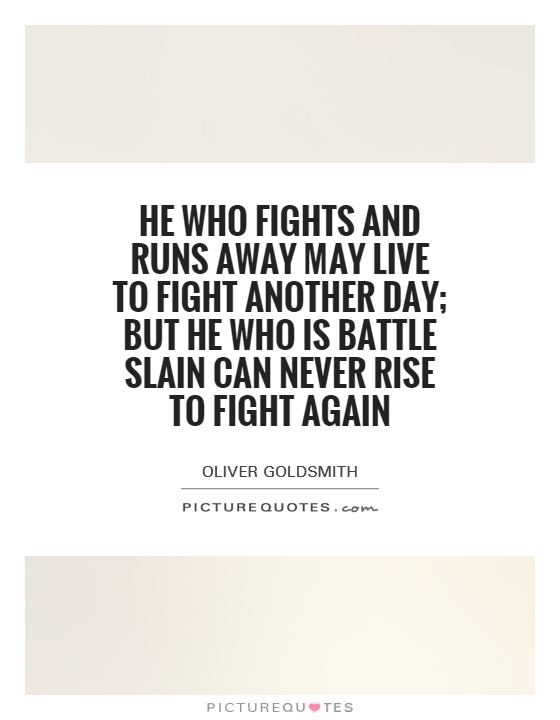
He who fights and runs away May live to fight another day; But he who is battle slain Can never rise to fight again
Oliver Goldsmith, an Irish writer and poet, is best known for his works such as "The Vicar of Wakefield" and "The Deserted Village." His writing often reflects themes of morality, human nature, and the consequences of one's actions. The quote "He who fights and runs away May live to fight another day; But he who is battle slain Can never rise to fight again" perfectly encapsulates Goldsmith's views on courage, survival, and the value of life.In the context of Oliver Goldsmith, this quote can be interpreted as a reflection of his belief in the importance of self-preservation and the futility of sacrificing oneself needlessly in battle. Goldsmith was a pacifist at heart, and he believed that violence and conflict only led to destruction and loss of life. He often criticized the glorification of war and the senseless loss of human life that it entailed.
Goldsmith's works often explore the consequences of rash actions and the importance of thinking before acting. In "The Vicar of Wakefield," for example, the protagonist's impulsive decisions lead to his family's downfall, highlighting the importance of prudence and foresight. Similarly, in "The Deserted Village," Goldsmith laments the destruction of a once-thriving community due to greed and exploitation, emphasizing the need for compassion and empathy in human interactions.
The quote "He who fights and runs away May live to fight another day; But he who is battle slain Can never rise to fight again" can be seen as a cautionary tale against recklessness and bravado. Goldsmith believed that true courage lay in knowing when to retreat and preserve one's life, rather than blindly charging into battle and risking unnecessary harm. By choosing to fight another day, one has the opportunity to learn from past mistakes and approach future challenges with wisdom and caution.
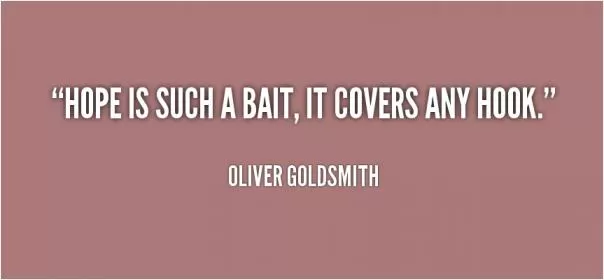




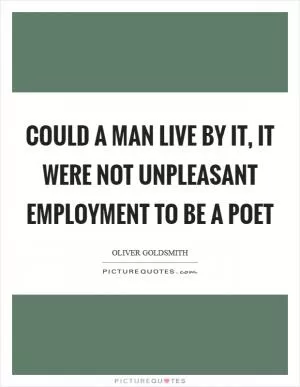
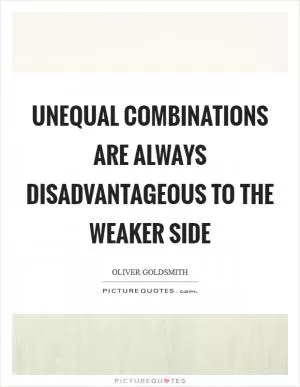
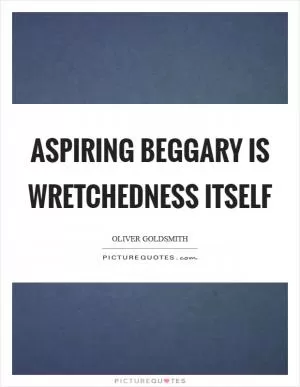



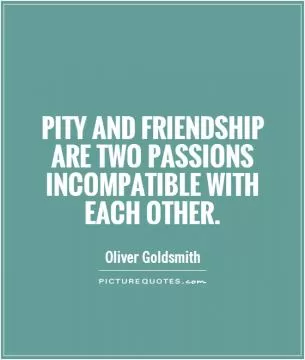
 Friendship Quotes
Friendship Quotes Love Quotes
Love Quotes Life Quotes
Life Quotes Funny Quotes
Funny Quotes Motivational Quotes
Motivational Quotes Inspirational Quotes
Inspirational Quotes